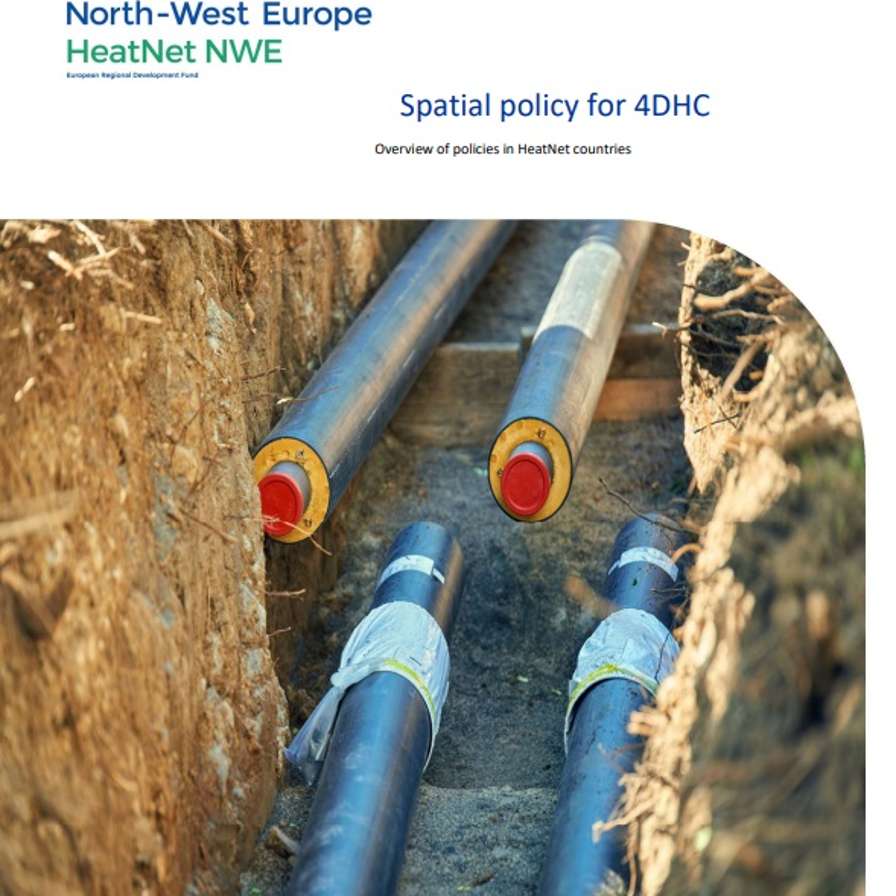Spatial Policy for 4DHC
Publication - June 2020

The Spatial Policy for 4DHC report contains main spatial policy approaches to securing District Heating and Cooling (DHC) networks through new developments in Belgium, France, Ireland, the Netherlands and the United Kingdom. This document has been developed as part of the HeatNet project, which aims to increase the uptake of 4DHC networks across North-West Europe.
HeatNet project
This document has been developed as part of the HeatNet project, which is part-funded through the Interreg NWE programme and aims to increase the uptake of fourth generation District Heating and Cooling (DHC) networks across North-West Europe. As part of this project, the partners developed the HeatNet Model, which will help the public sector to begin implementing 4DHC networks, and the Transition Roadmaps, which outline the partners’ experience in developing six district heating pilots across North-West Europe.
Spatial Policy for 4DHC
This report is about the spatial policies in the countries of the HeatNet pilots: the Netherlands, France, Ireland, Belgium, the UK and Scotland. It provides an overview of the relevant spatial policies and legislation in relation to the development of DHC networks
Authors
- Frank Suurenbroek
- Renee Heller
Spatial Urban Transformation and Energy and Innovation research groups
The Spatial Policy for 4DHC report is part of the Spatial Urban Transformation and Energy and Innovation research groups. The Spatial Urban Transformation research group conducts practice-oriented research into urban redevelopment, densification and public space. The Energy and Innovation research group investigates and designs technological interventions that accelerate the energy transition.